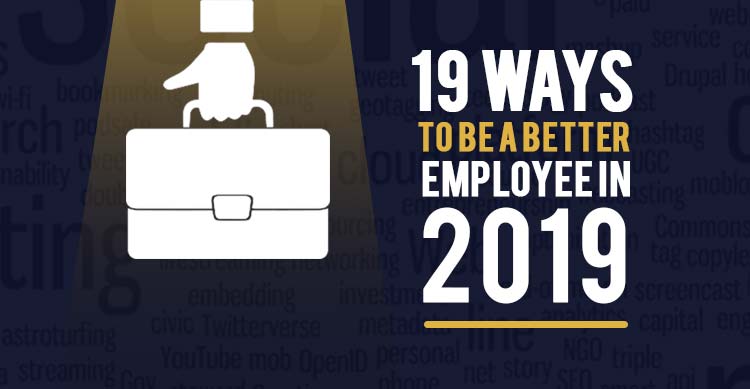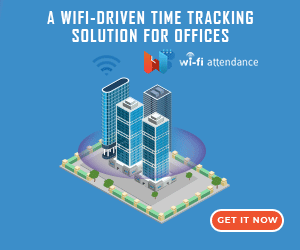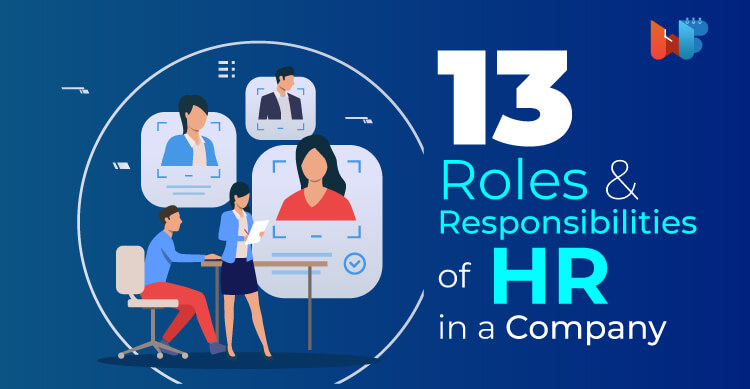
You may have resolutions to lose weight or become healthier this year but what about the resolution to become a better employee? Striving to become a better worker at the company can make you indispensable and also get you a promotion in the long run.
Read Also: How To Build Great Work Relationships
Irrespective of the industry you work in, here are 15 different ways to become a better employee in 2019.

1. Prioritize tasks at hand
In the face of overwhelming responsibilities, it is natural to get carried away with the thought of “what should I tackle first?”
A simple response to such situations is to “Prioritize” tasks. You can put down all tasks in ascending order of priority on paper and stick to the plan.
The deadlines should be able to help you get the order of planning right.
If deadlines are not the factor your brain is wired to follow, you have other options like the complexity of task, time taken or any other factor you believe will help you achieve the target.
A regular practice of this method will eventually help you figure out your personalized execution strategies.
It is the mark of a good employee to figure out all his strengths and weaknesses through trial and error techniques.
2. Keep up the learning game
Learning new things revamps you to attain a better version of self.
Your professional journey marks a new phase of educating yourself. People tend to give up on it once they feel they have accomplished the success they had in mind and get comfortable in the lap of monotony.
Constantly remind yourself, that nothing should stop you from learning. It is a part of progress and helps you rediscover your abilities and emotions.
It will help you keep pace with dynamic trends of workspace and digital world.
Set goals to try and get accustomed to new technologies each time. And when you have achieved one, move towards another.
3. Face to face collaboration
If there is one thing that digitalization has majorly impacted, it is the connection between people who find it more comfortable to chat, rather than talk in person.
The emails and skype makes the job easier and faster without a doubt, but also tends to affect the value of human relationships on a deeper level.
If you think, this has nothing to do with your workspace collaborations, listen up! Virtual talks actually lead a lot of time down the drain during important discussions that are precursors to imperative decisions.
The simple reason being, the sporadic inability of the people on both sides of the screen to clearly comprehend what is being said.
In person conversations on the other hand save a lot of time foster collaboration.
4. Be passionate towards work
Analyze the mindset and attitude you hold towards your work. If there is no passion involved, you are probably not even doing it right.
There is no point in showing up at work each day with blinkers and kicking up a series of events that have become your second nature since you do it every day.
Do you feel it’s the right direction to lead your professional journey into?
Growing with your job each day requires a 100 percent dedication. Unless you connect with the work at an intellectual level, the output will lack both precision and value.
Rather than maneuvering around with the same old tricks to, put some thought into crafting new approaches and see how that yields.
The element of mental involvement opens new doors of expertise and authority.
5. Improve your focus
The current generation has a lot of distractions. In fact, there seems to be a new one popping in every day. While some are important, some just end up wasting a lot of your time.
To add value to what you do at your and accomplish more than you decided to, enhance your focus. Identify which distractions trouble you and restrict their usage. As you learn to limit distractions, your productivity will improve.
6. Engage with employees
Some employees work from remote locations. If you are one of them, chances that you interact with colleagues face to face are lesser. This can impact your association with the organization and other team members.
Try to turn on your webcam or fix meetings with colleagues whenever you get a chance. Such interactions help for better communication and build working relationships. If you physically work at the workplace, walk over to your colleague and initiate a conversation.
7. Ask for feedback
You may feel that what you are doing is extremely efficient and above expectations. But do remember that it is not all about you. Ask your seniors for feedback and understand how you can improve your performance.
Listen to their inputs positively and ensure that you are not selfish and self-centered. Working with an egoistic and selfish employee isn’t fun, so avoid being one.
8. Don’t judge
Today, people tend to be judgmental. This isn’t improving results in any manner and is just making the workplace more complicated.
Respect your colleagues even if you disagree with their opinion. When you show more respect to the thoughts and beliefs of other people, you will be more productive and successful.
9. Accomplish
High performers always focus on what they need to accomplish. They do not get bogged down by workload. So concentrate on what you need to accomplish rather than just being busy.
10. Do not blame
Always remember that when you point a finger at someone, there are three fingers pointing back at you. If something hasn’t been done in the right way, ask yourself how you can bring an improvement.
Read Also: How to Improve a Toxic Work Environment
Take ownership and accountability. Employees who avoid blaming and take accountability of what’s happening are valued more than other employees.
11. Don’t be complacent
There is no reason to be complacent. You cannot know everything and there’s always room to learn more. The world is changing fast and team members who consistently take an initiative to learn are valuable and marketable.

12. Be Proactive
A lot of employees just meet job requirements. However, it is important that you remain committed and try to finish additional things on the task list. It can be challenging but is definitely rewarding. With this attitude, you will notice a sense of success for yourself.
13. Enhance your soft skills
Less-tangible skills like emotional intelligence are of great value today. For instance, an employee with high EQ has the ability to handle pressure, can cooperate with other team members, is ready to take feedback, and is also empathetic. Such employees are always more welcome in the working environment.
14. Have gratitude
Remember to say ‘thank you’ often. Don’t let anyone’s favour or anyone’s support go unnoticed. Co-workers will be more willing to help if you have a positive attitude and the ability to show gratitude.
15. Get better at goal setting
Goals are essential for progress. But just setting the goals is not enough. Goals must be beyond an employee’s comfort zone and often tied with broader corporate goals.
Perform frequent checks to understand how well you are progressing and ask for constructive feedback from peers and managers.
16. Manage your time well
Setting goals isn’t enough, meeting them on time is equally vital. If you don’t stretch deadlines and complete your assignments on time, you are like a star performer.
Do not generate too many ideas since they can sway you from the actual task at hand. Finish one milestone at a time and move forward with every step.
17. Improve your social media game
The social media game can help you in several ways to boost your career. Search for thought leaders and strive to position yourself at par with them. Share what you are working on and highlight your achievements.
18. Send better emails
Emails are an important medium of communication at the workplace. Make sure you write clear, concise, and actionable emails.
Start with what is worth the attention and then move on to the explanation bit. Do not forget to mention the next steps. Learn to respect the time the recipient is giving to read your email.
19. Work on how you deal with conflict
When more people are working on a particular project, differences in opinion are bound to arise. These differences can escalate to a conflict depending on the kind of people working together.
Read Also: How to Build a Better Company Culture
Try to find out the cause of a clash and fix it at your end before rolling up your sleeves. Keep the ultimate goal as the center of your thought process and recommend a compromise.

A Final Thought
The above-mentioned tips are great to start with and you can really contribute much more to your organization. No one will lead you to become a better employee, it is you who has to take the initiative and bring about a difference.









